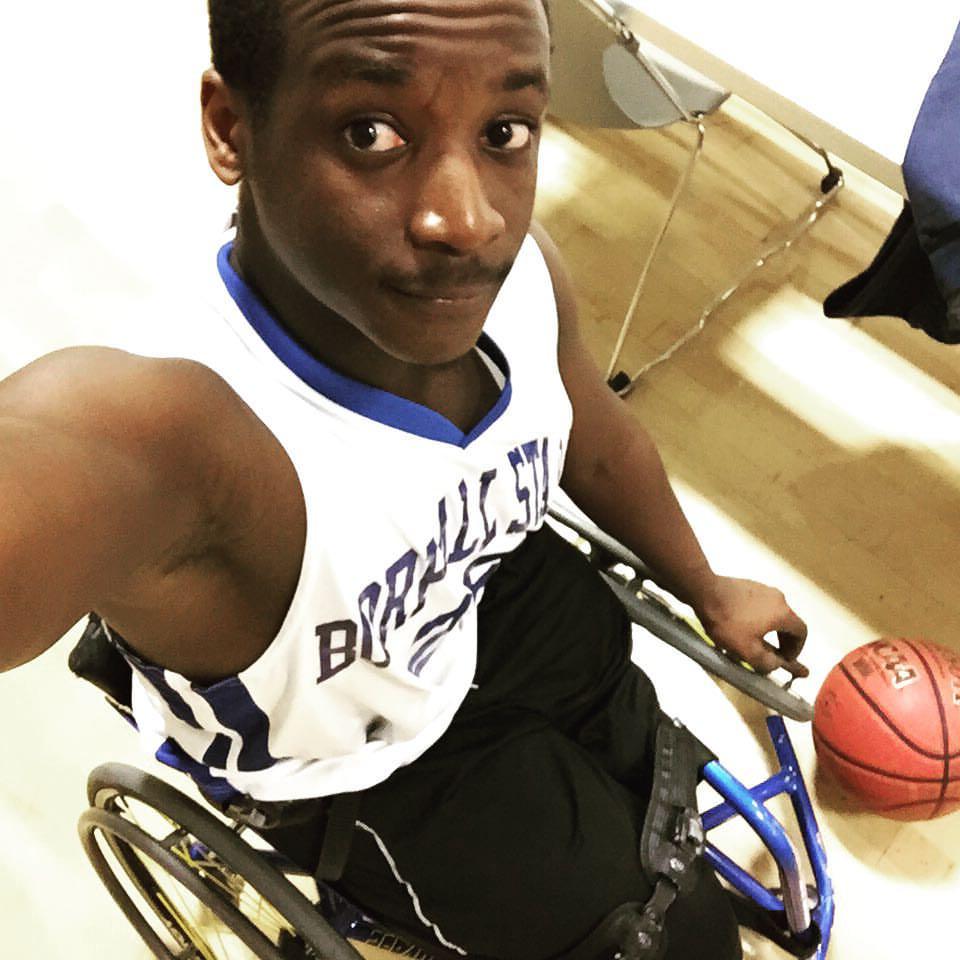
Shaping Young Leaders Living With Disabilities
Scholar Munya Mahiya Shares Vision for Inclusive Universities
When I was 15, I developed bone cancer. Although I lost my leg to the disease, I was fortunate to recover and to go back to the high school where I had previously studied. My classmates and teachers were really accepting and I continued my education.
When I think back, I realize that if I had gone to a school that specializes in the needs of disabled young students, I probably wouldn’t have made it as far as I have. The type of education that is given to young disabled people in Zimbabwe is different from the type of education afforded to students without disabilities. There aren’t many opportunities beyond secondary school for a lot of kids with disabilities, with many of them usually attending schools that mainly focus on specific types of disabilities. In Zimbabwe, you have King George, a school for the visually impaired. You have Danhiko Project in Harare for those who are physically impaired. But young people with disabilities are not integrated in a way that brings about their inclusion in mainstream society.
Little thought is given to these young people’s big picture or what’s going to happen next beyond education. What ends up happening is this: students are taught mainly vocational subjects that will give them jobs in industries like carpentry or menial jobs such as gardening. But what if a young person wants to be a lawyer? He or she won’t receive training that will enable them to go into professional mainstream careers. When it comes to mainstream integration, school teachers aren’t equipped with proper training and can’t deal with specific types of disabilities. My disability does not require any special training from teachers, but when you are working with people with hearing or visual impairment, cognitive or learning disabilities, that can be problematic. The bottom line: these specialized schools aren’t focusing on preparing young Africans for a university education.
World-wide, governments are failing to meet the basic needs – and particularly the education needs – of citizens living with disabilities. Africa is home to 80 million people living with disabilities, with an estimated 1.9 million living in Zimbabwe and another 2.4 to 4.8 million children living with disabilities in Ethiopia. And yet in Ethiopia, only 3 percent of these disabled children will go to school. How we look at disability, distinguish different types of disabilities, and what kind of assistance is required for various disabilities will define how the education system can create opportunities for young people who often aren’t included.
There is a need for organizations to develop opportunities like those created by The Mastercard Foundation Scholars Program’s partnership between the University of Gondar in Ethiopia and Queen’s University in Canada, which will provide 450 scholarships to talented young people living with disabilities. The partnership will also bring much-needed perspectives that will allow the Foundation and its partners to better understand and meet the needs of talented young people living with disabilities. Foundations and non-government organizations are stepping in and lifting some of the barriers that young people with disabilities face on a daily basis.
Inclusion is a cultural imperative for us across Africa, because the lives of young people like me are too often intertwined with the threat of poverty, greater risk of contracting HIV/AIDS and of being the survivor of physical or sexual violence. I have worked to develop a pipeline tracing disabled people’s journeys from disability to poverty, and from poverty to disability, to demonstrate to governments world-wide how building a culture of economic, social, and educational inclusion can improve the lives of those among us living with disabilities.
There is a need for these opportunities, because those of us who are overlooked could be improving the lives of others and making the world a better place. My advice to you, the new Scholars who will be starting their first semester at the University of Gondar in September, is to take your time and figure out what community you want to belong to. Figure out what you want to do with the eight university semesters that you have on your hands.
Figure out who you want to be, and how you want to give back, and as long as you do that, you’ll be fine.
A native of Zimbabwe, Munya Mahiya is a Mastercard Foundation Scholar pursuing an undergraduate degree in political science at the University of California, Berkeley. Munya has advocated for the rights of persons with disabilities, particularly in education and sports.


